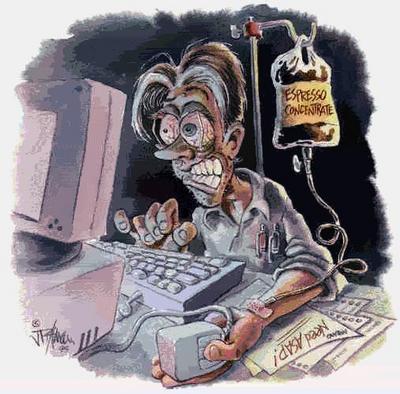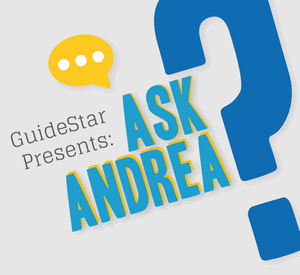 I just realized that I’m addicted to e-mail.
I just realized that I’m addicted to e-mail.
Are you?
I check my email constantly. A corner of my eye is always on my inbox.
When something new appears, I’m sucked away from whatever else I’m trying to get done.
And I don’t like it.
My email addiction adds up to feeling empty and unsatisfied because though I work all day, I don’t get much done that feels like it amounts to anything significant.
Test if You’re Addicted to Email
Try my little email addiction test. Ask yourself:
- Do you check your email all the time?
- Do you leave your mail program open on your desktop all day?
- Does each new email make a little noise? And do you feel a tiny jolt of energy when you hear it?
If you’ve said yes to each of these questions, then you might as well admit that you’re an email addict, too. And believe me, that’s NOT good.
Why is Email Addiction Bad?
Because email addicts are at the mercy of whatever comes into their inbox.
Email addicts react to what’s urgent rather than focusing their attention on what’s important. And their ability to focus their attention for more than a few minutes at a time gradually erodes, leaving them quite unable to get any serious work done.
And here’s what makes it really bad…
If you give in to your email addiction day after day, you’ll probably end most days feeling unsatisfied.
You’ll have worked all day and been in touch with dozens of people. You’ll have taken care of many urgent small matters. But you won’t have accomplished much that’s satisfying because most things that are satisfying take more concentration than we email addicts can usually muster.
It feels lousy to work hard and accomplish little!
6 Steps to Cure Your Email Addiction
Here’s my new homegrown remedy for curing your email addiction.
Note for you Twitter and Facebook addicts — these steps will also work for your social media addiction.
1. Turn off the alert. Turn off that darn e-dinger. No more audio alert when you get a new email! No more salivating like Pavlov’s dogs!
2. Keep it closed. When you’re not actively checking your email, close it. Don’t let it sit on your screen where you can glance at it.
3. Set eMail check times. Set specific times in the day to check email. Limit each session to a specific amount of time, 30 minutes for example, and then shut it down. It’s okay if you check multiple times a day as long as you time each session and shut it down after you’ve checked it.
4. Tell others. Let your colleagues know that you are changing your habits so they don’t wonder what happened when you don’t respond instantly.
5. Make an action list. Every morning before you open your email, make a little list of things you want to get done that are important but not urgent. (See more about this wonderfully useful distinction.)
6. Feel satisfied. Every evening, check your list of important things and notice what you’ve accomplished. Then, notice the sensation of feeling satisfied.
Increase Your Attention Span
There’s ample evidence now that your brain has ‘plasticity.’ That is, it actually grows and changes to accommodate the way you use it.
As you spend more time working on tasks that take more than a few seconds, you’ll find that in just a few days your attention span will start increase. First you’ll focus for a few minutes, then an hour and then you’ll find yourself engrossed in something for an entire morning.
What will be the results?
You’ll be more productive, happier, more accomplished and probably even more successful. And because your happier, your friendships and partnerships will be more fun.
And yup — you might even get thinner, smarter and more beautiful. (Just kidding!)
Kick the Email Habit
Take a close look at the way you use email. Do you control it? Or does it control you?
If you’ve got a bad email addiction, try the suggestions in this post to shift the balance in your life. Choose greater productivity over the constant pull of email and focus on what’s most important rather than what appears to be urgent. Often that sense of urgency is more in your head than not.
Share any strategies you find helpful in taking back control of your life from the incessant pull of email or social media. Thanks in advance! Can’t wait to see your suggestions!
